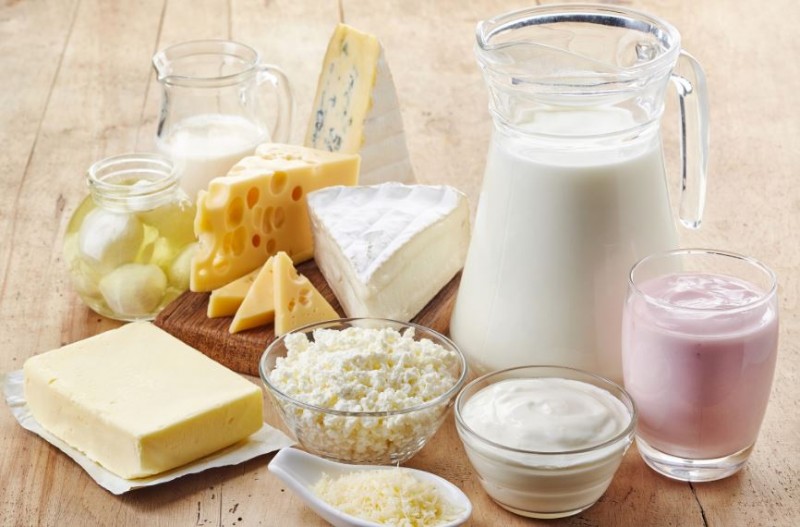
Dairy products, encompassing a wide range of foods derived from milk, hold a significant place in diets worldwide. From childhood to adulthood, individuals consume dairy in various forms, including milk, cheese, yogurt, and butter. The allure of dairy lies in its rich nutritional profile, boasting essential nutrients like calcium, protein, vitamins, and minerals. However, recent discussions have surfaced regarding the potential implications of excluding dairy from one's diet. This comprehensive analysis aims to delve into the multifaceted aspects of dairy consumption, considering its impact on health and well-being.
Nutritional Composition of Dairy Products:
Dairy products serve as a valuable source of nutrients crucial for optimal health. Calcium, a mineral abundant in dairy, plays a pivotal role in bone health, muscle function, and nerve transmission. Adequate calcium intake during childhood and adolescence is particularly important for achieving peak bone mass and reducing the risk of osteoporosis later in life. Moreover, dairy products are a significant source of high-quality protein, essential for muscle repair, growth, and overall tissue maintenance.
Vitamins such as vitamin D, present naturally in some dairy products and often fortified in others, facilitate calcium absorption and help maintain bone density. Furthermore, dairy contains essential B vitamins, including riboflavin, vitamin B12, and pantothenic acid, which are vital for energy metabolism, red blood cell production, and neurological function.
Minerals like phosphorus, potassium, and magnesium are also found in dairy products, contributing to various physiological processes such as bone formation, fluid balance, and muscle function. The synergistic combination of these nutrients underscores the nutritional significance of dairy in supporting overall health and well-being.
Health Benefits of Dairy Consumption:
The consumption of dairy products has been associated with numerous health benefits across different life stages. In children and adolescents, adequate dairy intake supports optimal growth and development, including bone mineralization and skeletal health. The calcium, vitamin D, and protein content of dairy products contribute to the formation of strong bones and teeth, reducing the risk of fractures and dental issues.
Furthermore, dairy consumption has been linked to a reduced risk of developing chronic diseases such as hypertension, cardiovascular disease, and type 2 diabetes. The bioactive peptides present in dairy proteins may exhibit antihypertensive properties, contributing to blood pressure regulation and cardiovascular health. Additionally, calcium and other components of dairy may play a role in improving insulin sensitivity and glycemic control, thereby lowering the risk of diabetes.
For adults, incorporating dairy into the diet can aid in weight management and metabolic health. The protein content of dairy promotes satiety and helps regulate appetite, potentially reducing calorie intake and supporting weight loss efforts. Moreover, dairy consumption has been associated with a lower prevalence of metabolic syndrome, a cluster of risk factors linked to obesity, insulin resistance, and cardiovascular disease.
Mental and Emotional Well-being:
Beyond its physical health benefits, dairy consumption may also influence mental and emotional well-being. Emerging research suggests a potential link between dairy intake and mood regulation, cognitive function, and stress management. The presence of bioactive compounds in dairy products, such as peptides with opioid-like properties, may exert mood-enhancing effects and promote feelings of relaxation and well-being.
Furthermore, the neurotransmitter serotonin, known for its role in mood regulation and emotional stability, depends on adequate dietary intake of the amino acid tryptophan, found in dairy proteins. Thus, maintaining sufficient levels of tryptophan through dairy consumption may support serotonin production and contribute to overall emotional resilience and mental health.
Potential Considerations for Dairy Exclusion:
While dairy products offer a plethora of nutritional benefits, certain considerations warrant attention when contemplating their exclusion from the diet. Individuals with lactose intolerance, a common condition characterized by the inability to digest lactose, the sugar found in milk and dairy products, may experience gastrointestinal discomfort, including bloating, gas, and diarrhea, upon consuming dairy.
Moreover, some individuals may exhibit sensitivity or allergy to specific components of dairy, such as casein or whey proteins, leading to adverse reactions like skin rashes, respiratory symptoms, or digestive disturbances. In such cases, eliminating dairy from the diet may alleviate symptoms and improve overall well-being.
Additionally, concerns have been raised regarding the potential environmental and ethical implications associated with dairy production and consumption. Issues such as greenhouse gas emissions, water usage, and animal welfare practices in the dairy industry prompt conscientious consumers to explore alternative dietary choices, including plant-based milk alternatives and dairy-free products.
In conclusion, dairy products serve as a cornerstone of many diets worldwide, providing essential nutrients that support optimal health and well-being. From calcium and protein to vitamins and minerals, dairy encompasses a diverse array of nutrients with far-reaching physiological effects. The consumption of dairy has been associated with numerous health benefits, including improved bone health, reduced risk of chronic diseases, and potential contributions to mental and emotional well-being.
However, it is essential to acknowledge individual variations in tolerance, preference, and dietary requirements when considering dairy consumption. For individuals with lactose intolerance, dairy allergies, or ethical concerns regarding dairy production, alternative dietary choices may be warranted. Ultimately, making informed decisions about dairy consumption involves balancing nutritional considerations, personal preferences, and broader health and environmental considerations.
Meditation Can Improve Your Mental Health: Find Out How